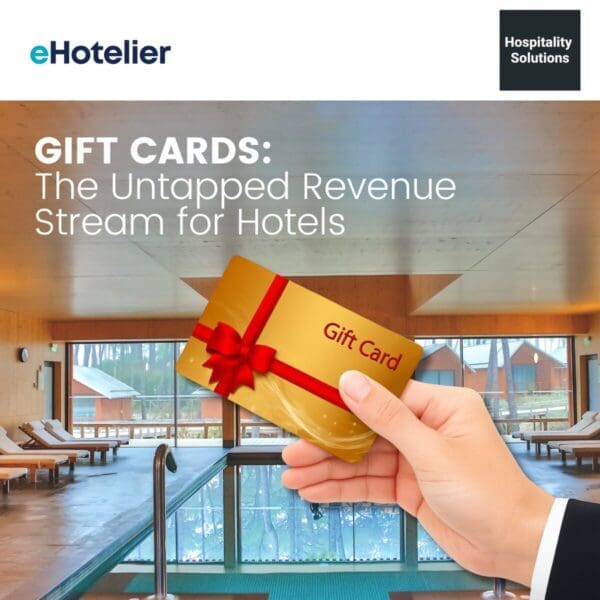 As any successful hotel marketer knows, creating an engaging blog is critical to success. Yet writing blog posts is not as easy as simply typing willy-nilly then publishing your unedited thoughts. If you want to attract relevant web traffic and keep the SEO bots satisfied, you’ll need a better plan.
As any successful hotel marketer knows, creating an engaging blog is critical to success. Yet writing blog posts is not as easy as simply typing willy-nilly then publishing your unedited thoughts. If you want to attract relevant web traffic and keep the SEO bots satisfied, you’ll need a better plan.
While it’s a cliché, we have to agree that quality trumps quantity. At the same time, most hotel marketers don’t have the luxury of simply sitting around and waiting for the next ingenious idea to strike.
If writing isn’t your strong suit, then creating and updating blog content can sometimes feel like an uphill battle. While we are all for breaking the content mould on occasion, we can also see the value of certain tried-and-tested formats that can help you come up with ideas for your hotel blog.
Whether you’re looking for inspiration for your next post or for new formats to shake up your hotel blog, here are 10 types of posts that help increase web traffic.
1. The list
These are everywhere on the web and for good reason. They streamline information into an irresistible, easy-to-read package and, as it turns out, we’re actually hardwired to like them. Some naysayers claim the format has been done to death, but audiences don’t lie, and as BuzzFeed’s impressive readership stats attest, this type of post remains as effective as ever.
In case you’ve been living under a rock, here are some examples of the unstoppable list post; this one from Lošinj Hotels & Villas lists ‘Four Ways to get in Shape at the Vitality Hotel Punta’ and this one from Boutiquehotel Stadthalle in Vienna offers ‘Five Tips to go Green’.
2. Thesis with expert opinion
The key to a good thesis post is knowledge. You have to offer a theory that challenges the status quo and then, most importantly, back it up. What’s best about this type of article is that they tend to have legs and can attract new readers long after they’re first published. Here, Mr and Mrs Smith make a case as to why Copenhagen is cool again.
3. Topical post
A topical post requires you to have your finger on the pulse. You don’t necessarily have to report on breaking travel news stories; there are other ways to create timely content. Plan your hotel’s blog posts around upcoming events, anniversaries or holidays (as Grand Luxury Hotels did with this Easter-themed post and as the Standard did with this NY Fashion Week-oriented post). Where appropriate, you may also want to link a post to a current news story or capitalise on recent industry buzz with a reactionary piece.
4. Advice post
Online audiences flock to ‘how-to’ blog posts like moths to a flame. If you can help your guests better understand the local area or offer them tips on what to do while here, you’re onto a winner. As an added bonus, this type of post can boosts your hotel’s profile, helping the brand develop and maintain authority, and — if your content is good — cementing your credibility. Two great examples of this are Tune Hotels’ blog on ‘Travel Hacks to Make Your Flight More Comfortable’ and Red Carnation Hotels’ blog post on ‘Where to See Live Jazz in Geneva’.
5. Behind-the-scenes
Let’s begin with a caveat: a man or woman staring at computer screen does not make for compelling hotel blog content. However, assuming there is some more interesting stuff going on at your hotel, then behind-the-scenes content can prove to be a real draw. Examples of behind-the-scenes travel content that works includethis piece from Kimpton Hotels, which features personal tales about shelter dogs as told by Kimpton employees.
6. Curated content roundup
To create a roundup post, you need to do the heavy lifting on behalf of your readers. Sort and sift your way through the mass of interesting online travel content and events on the web and pick out the best of the bunch. Provide some context and arrange it in an attractive, readable format.Take a look at this Roger Smith ‘Social Calendar’ roundup to see how it’s done.
7. The interview
The success of an interview piece rests on who you choose to interview and what you ask them. Generally, a high-profile name in their field is always a good bet (see the Standard’s interview with DJ-cum-BBQ whiz Seth Troxler), as is anyone who can bring a touch of humour to the table.
8. Research or original data
If you have the means, conducting or collecting original data on travel or your hotel’s location can be of value to your readers. Alternatively, leave the studies and surveys to the experts and focus your attention on picking out highlights, summarising key findings and making dense information more palatable.
9. The review
Not a day goes by that we don’t see the launch of a new travel app, restaurant or other attraction. If it’s near your hotel and aimed at travellers, there is a good chance your guests will relish a review of it. For an example of this type of post, see this Roger Smith Armory Show review.
10. The personal story
Your hotel blog is not just really an opportunity to transcribe your personal journal. But there is still plenty of room for storytelling in it, especially when you’ve got an interesting tale to tell. Take your cue from travel pieces aimed at wider audiences; this Indie award-winning piece and this Paul Morris masterclass are two great storytelling examples.



















